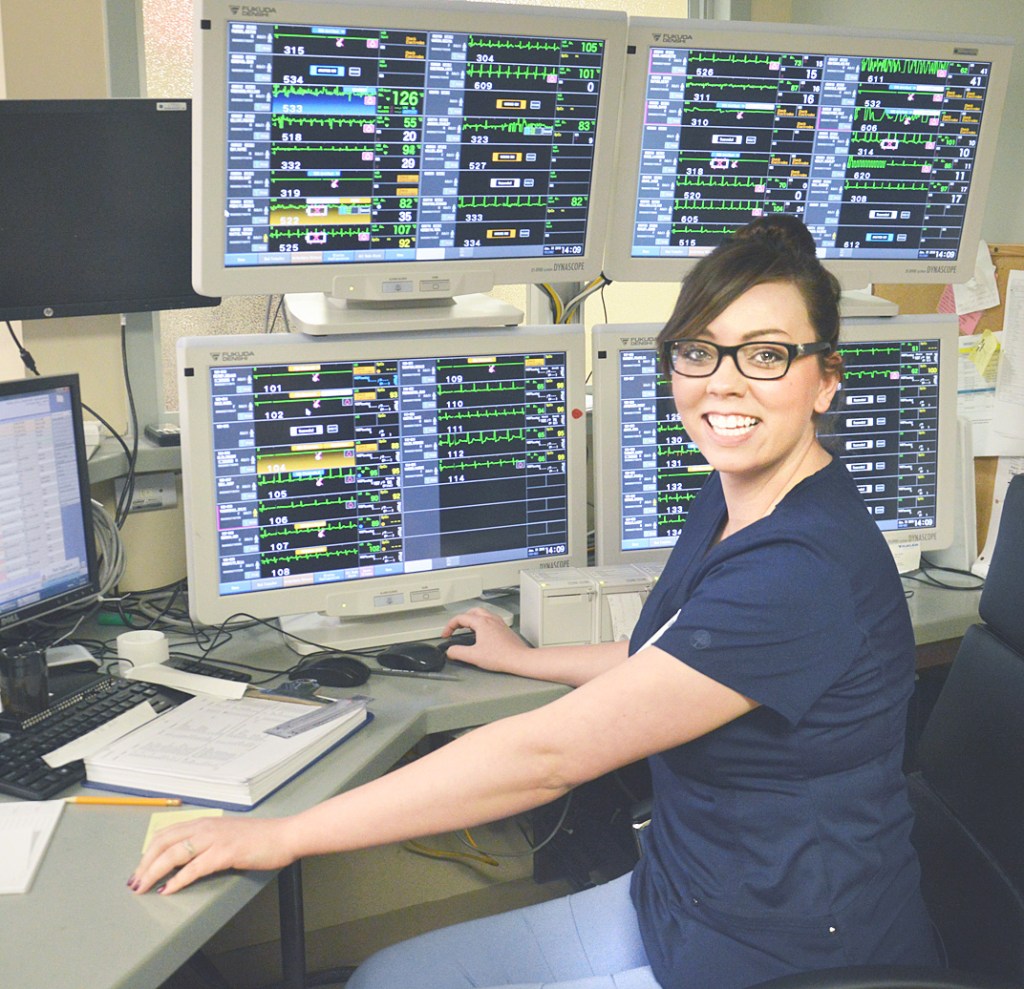One Day: Beth Rosenbarger
Published 10:43 am Monday, February 5, 2018

- Beth Rosenbarger is a cardiovascular RN at Ephraim McDowell Regional Medical Center. She says nurses have to be very organized and be able to multi-task in order to give the best care for their patients.
Beth Rosenbarger
RN at the Cardiovascular unit at Ephraim McDowell Regional Medical Center
One day while working in the cardiovascular unit at Ephraim McDowell Regional Medical Center, Registered Nurse Beth Rosenbarger cared for five patients during her 12-hour shift.
Trending
She loves the intensity of her profession including the fast pace and critical care situations she faces every day.
“It’s really interesting too.”
Rosenbarger, 25, attended Burgin High School and knew exactly what she wanted to do after graduation, “and I just went for it.”
She graduated from Midway College with a degree in nursing and has been working at EMRMC for four years.
Rosenbarger said a nurse has to be good at multi-tasking, which is sometimes the most difficult part of her job.

As an RN, Rosenbarger is responsible for monitoring her patients’ medication schedules and making sure they receive them on time. In the cardiovascular unit, Rosenbarger punches in a code and uses a fingerprint in order to retrieve required medicine locked in an Omnicell supply unit.
There are patients’ charts to monitor; medications to retrieve and administer on rigid schedules; vital signs to be taken and adjustments to make when necessary; phones to answer; updates to doctors and other health care workers on patients’ conditions; fluid and tissue samples to collect for lab work; patient questions to address and families’ concerns to sooth.
Trending
Sometimes she gets to take a lunch, Rosenbarger said.
Nurses also need to prioritize their patients’ needs and decide on the most efficient and effective way to give the best care to each person, she said.
According to a Fitbit she wears sometimes, Rosenbarger found out she easily walks six miles a day up and down the hospital hall.
“And that’s a good day.”

Rosenbarger said she walks at least six miles a day up and down the hall in the cardiovascular unit.
But there’s no way to keep track of how many times she washes her hands to reduce the spread of germs on the floor. The rule is to always wash hands before and after leaving each patient’s room —whether by using hand sanitizer or good old soap and water.
She said new guidelines require health care workers to use sanitizer twice in a row, then go to the sink for a soapy wash.
Her hands get terribly dry and chapped because of all the washing, she said.
Rosenbarger is most comfortable being a “hands-on” nurse and having personal interactions with those she cares for.
Unfortunately though, some patients she’s helped nurse back to health are admitted to the cardio unit more than once.
She said bad lifestyle habits are hard for some of them to overcome, which cause more cardio emergencies to reoccur.

Rosenbarger administers an antibiotic to Anna Adams who is a patient from Nicholasville.

RNs carry a cellphone with them at all times to discuss patients’ needs with other health care providers including doctors, lab technicians and pharmacists.
Most patients are easy to care for. But sometimes they act like they’re the only ones in the hospital, she said. But she knows they are not feeling well and are probably a little scared.
“I’d be a terrible patient. Nurses are terrible patients,” Rosenbarger said. “We question everything!”






